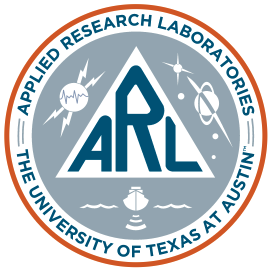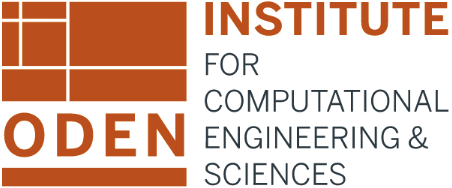UT researchers are advancing next-generation capabilities and readiness needed to ensure our national security. The outcomes of defense research can lead to technological advancements, enhanced military capacity and innovations that have both civilian and military applications in healthcare, disaster relief, cybersecurity, infrastructure, transportation and peacekeeping policy.
The Office of the Vice President for Research, Scholarship and Creative Endeavors has a dedicated staff who engage with campus researchers and the defense innovation ecosystem to advance scientific discovery for the unique requirements of the Department of Defense.
Through key partnerships and collaborations, many of these contributions have a direct and positive impact for those who protect our country through their military service.
Defense Research Initiatives
Several centers and institutes at UT are advancing policies, research and technology to improve national security. Those include:
Applied Research Laboratories

Applied Research Laboratories, The University of Texas at Austin (ARL:UT) is a Department of Defense (DOD) University-Affiliated Research Center and the largest organized research unit within the Office of the Vice President for Research, Scholarship and Creative Endeavors portfolio.
ARL:UT advances UT Austin’s mission of education, research and public service. Through fundamental research, innovative science and applied engineering, ARL:UT makes significant contributions in support of national security.
An integral part of the top-tier research University, ARL:UT builds upon a 78-year history of world-class research and expertise for the DOD and other sponsors supporting their critical and ongoing quest to maintain the technological advantage that is critical to our nation. ARL:UT’s top-quality research staff with deep technical expertise provides multi-disciplinary research and unbiased guidance to the government and tackles complex and challenging problems. Its strong commitment to student employment and programs provides support to the next generation of scientists and engineers and helps to shape the future of defense research.
Center for Electromechanics

The Center for Electromechanics (CEM) performs basic and applied research in electrical and mechanical engineering, with an emphasis on technology and prototype development in: (1) electromechanical devices and systems with high specific power, force, and/or energy storage or other unique capabilities, (2) grid / microgrid solutions with system monitoring and fault detection attributes, and (3) hydrogen energy systems from production to end use applications.
As part of the Cockrell School of Engineering, the center is at the forefront of applying fundamental knowledge to novel application areas, providing capabilities in defense, biotechnology, power systems, space and transportation. Imbedded in this mission is training undergraduate and graduate students to become leaders in their fields as they work with CEM researchers to advance and test of new technologies.
Center for Space Research

For over four decades, the Center for Space Research (CSR) has combined engineering, space and Earth sciences to provide expertise and leadership in orbit determination, remote sensing, and computational methods.
An organized research unit in the Cockrell School of Engineering, CSR acts as both an intellectual and administrative hub enabling research across a broad range of topics. The center’s mission is to continually develop and innovate space-centric scientific discovery and emerging fields of research across the broad reach of terrestrial, airborne and orbital technologies and methodologies to learn more about planetary bodies.
CSR continually strives to address complex scientific challenges, such as quantifying sea level rise and ice cap melt, monitoring global water storage processes, developing innovative GPS/location-based applications, fabricating small satellites, and pushing each new supercomputer to its limits.
Research capabilities:
- Gravity Field
- Quantum Pathways Institute
- 3D Geospatial Laboratory
- Radar Applications
- McDonald Geodetic Observatory
- Satellite Geodesy
- Cis-lunar Exploration
- Small Satellite Technologies
- Urban Climate Studies
Clements Center for National Security

The William P. Clements, Jr. Center for National Security at The University of Texas at Austin draws on the best insights of diplomatic and military history to train the next generation of national security leaders. Established in 2013 with the support of distinguished policymakers and scholars, the Clements Center is a nonpartisan research and policy center uniquely positioned in the Office of the President.
The Clements Center honors former Texas Governor Bill Clements and his leadership on national security during his service as Deputy Secretary of Defense from 1973-77. Governor Clements managed the Pentagon and helped guide American national security policy during a critical time. He brought a deep appreciation for history to every aspect of his leadership, policies and decision-making.
Microelectronics Research Center

The Microelectronics Research Center (MRC) is advancing education, research and innovation in materials and electronic devices through its mission:
- Perform research in novel materials of interest to the IC industry, optoelectronics and nanophotonics, novel electronic devices and nanostructures, and interconnects and packaging for academic as well as industrial users
- Train graduating students for careers in microelectronics
- Develop microelectronic devices, integrated circuits, and optoelectronic components
MRC is funded by the National Science Foundation through the National Nanotechnology Coordinated Infrastructure and works closely with many industry and government laboratories. The center’s interdisciplinary approach brings together UT faculty from the Electrical and Computer Engineering, Physics, Chemistry, and Materials Science and Chemical Engineering. Faculty participate in several concentrated research groups.
Oden Institute for Computational Science

The Oden Institute for Computational Science provides an inclusive interdisciplinary environment that enables outstanding research, fosters high-impact collaborations and advances graduate education in the field of computational science and engineering.
Strauss Center for International Security and Law

The Robert Strauss Center for International Security and Law integrates expertise from across UT Austin, as well as from the private and public sectors, in pursuit of practical solutions to emerging international challenges. The Center sponsors a wide array of research programs and educational initiatives, including nationally recognized programs on National Security Law, Cybersecurity, Technology and Global Affairs, the U.S.-Mexico Border, U.S. policy toward Asia and Space Policy. The Strauss Center also offers numerous fellowship and scholarship programs for UT-Austin students with an interest in international security.
The Strauss Center – Applied Research Laboratories Joint Studies Program
The Strauss Center-Applied Research Laboratories Joint Studies Program is a multidisciplinary program that applies research in law, political science, engineering and the natural sciences to problems in national security, defense and public service.
To advance the Strauss Center and ARL:UT’s mission in public service, the Joint Studies Program provides hands-on research opportunities, fellowships and mentorship for undergraduate and graduate students. It supports collaborations between researchers, building bridges between disciplines, and it serves as a repository of knowledge focused on strengths, weaknesses, opportunities and risks presented by emerging technologies in order to guide their applications.
Texas Advanced Computing Center

The Texas Advanced Computing Center (TACC) designs and operates some of the world's most powerful computing resources. The center's mission is to enable discoveries that advance science and society through the application of advanced computing technologies.
Texas Quantum Institute

Texas Quantum Institute includes core research faculty across the College of Natural Sciences and the Cockrell School of Engineering who contribute to an international reputation for quantum advances that span disciplines.
The institute is making discoveries about how to control and leverage quantum information for society-benefiting applications including current and future challenges in semiconductor and quantum technology. The four key areas that are driving quantum research at UT are algorithms, materials, metrology and systems.
TEXAS Robotics

TEXAS Robotics unites robotics efforts at The University of Texas at Austin, fostering deeper collaborations and groundbreaking research in long-term autonomy, robot manipulation, and human-robot interaction. By leveraging the University’s strengths across a broad range of industrial applications, TEXAS Robotics enables innovative solutions in fields such as surgical robotics, social and rehabilitation technologies, autonomous vehicles, drilling, manufacturing, space exploration, nuclear engineering, and defense.
Faculty and students from four top-ranked departments, including the Department of Aerospace Engineering, the Department of Computer Science, the Department of Electrical and Computer Engineering, and the Department of Mechanical Engineering, work together to address pressing societal challenges. TEXAS Robotics is committed to forging strong industry partnerships and bridging academia with real-world applications to become the public research university with the highest impact in robotics.
Wireless Networking and Communications Group

The Wireless Networking and Communications Group (WNCG) is an interdisciplinary center in the Cockrell School of Engineering with an emphasis on industrial relevance. The group includes faculty and students from electrical and computer engineering, aerospace engineering, mathematics, and computer science. WNCG’s mission is to create a collaborative environment that supports research, provides highly relevant education and opportunities, promotes technical innovation, imagination and entrepreneurship in wireless networking, communications and data sciences.
WNCG’s budget comes from a combination of corporate sponsors, state and federal government funding, and subcontracts from other universities. The group’s focus on corporate support reflects a commitment to collaborative research and technology transfer enabling WNCG’s innovative ideas to find their way to the market. Industrial Affiliates serve as a catalyst by bringing operational experience and sponsorship.

